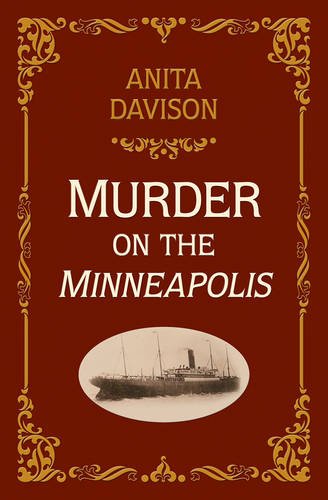_________________________________________
MJN: You write under two pen names.
Your first books under your real name have an air of romantic suspense around
them. You also have a book under Anita Seymour "Royalist Rebel"
that's more hardcore historical. Do you prefer to keep the two styles separate?
AD: This was in fact my
agent’s idea. I have had more than one publisher since my first novel came out
and I now write in more than one genre. This isn’t unheard of but publishers
like to know what to expect from their authors. Therefore I publish my 17th
century work under the name Seymour and my Victorian novels as Davison.
MJN: The English Civil War and the
Cromwellian era often fall by the wayside. Do you think the Stuart dynasty will
become the subject of HBO shows like The Tudors?
AD: I would like to think
so as, personally, I find the 1600’s a fascinating section of history. There
have been some historical dramas set in this era, e.g., The Power and the
Passion, and The Devil’s Whore. Most of the spotlight tends to focus on Charles
II and his mistresses, all curly long male wigs and low cut silk dresses. So
much more happened during this Century, the change in attitudes, for instance
the move away from religion and towards science to find answers to the
mysteries of the world. There are many fascinating characters who would make
the subjects of interesting dramas. I would love to see one made about William
III and Mary II, then there is John Evelyn, Christopher Wren, Robert Moray,
George Villiers, John Wilmot, the list is never ending.
MJN: You dub yourself as
"disorganised writer". In what sense are you disorganised? Is it that
you write without a deadline in mind? You also refer to yourself as
"struggling". You appear to have no trouble selling your manuscripts
to publishers and moving copies. In your personal subjective opinion, what
defines literary success? Is it the number of copies sold? The prominence of
the publisher? The number of stellar reviews from respectable critics?
AD: That came about in the
days before I was published and needed to find a title for my blog. Every other
author profile seemed to be along the lines of; I have four children under ten,
work full time, participate in the PTA, Muck out feed and exercise three horses
every day, chair five charity committees for underprivileged children and write
a novel a year. I was totally intimidated by most of them, so I wrote a brief
‘window’ into my day as an author – just for fun. It’s here:
http://thedisorganisedauthor.blogspot.co.uk/p/why-disorganised-author.html
MJN: Your last book is a cozy
mystery. Can you explain what makes a mystery "cozy". The number of
corpses does not exceed a certain number? I've encountered the term "cozy
romance", something without explicit erotic scenes. What qualities does
the piece need to possess in order to qualify as "cozy"?
AD: Cozies are a genre in
themselves and follow a specific formula, which means no gratuitous violence or
explicit sex. The murder happens at the beginning of the story so the reader
does not invest emotionally in the victim. The killing also occurs off stage – no
gratuitous gore. The sleuth is usually an amateur often helped by an accomplice
who may or not be a policeman. There is often a second murder, maybe even a
third, but by the end of the novel good triumphs over evil and the villain gets
his/her just desserts. The reason for the crime is either love or money, but
the murderer is never a psychotic serial killer. I love the challenge of
reading them and unravelling the clues, and I even like darker murder mysteries
but I’m skilled enough to write one – or maybe not twisted enough?
MJN: You have been very generous with
your leisure, promoting the talent of other authors, which I applaud. Many
authors, once they reach a certain level of prominence, do not have a minute to
spare for their colleagues. Do you believe that cross-promotion is a powerful
marketing tool?
AD: Thank you Marina, it’s
nice to be appreciated. I am part of a critique group of multi-published,
self-published and aspiring writers, and we all had to begin somewhere.
Publishing has altered completely over the last twenty years, in that
publishers today insist we create our own online platform to promote our work,
investing a lot of time and even money – only famous and bestselling authors
receive the showbiz book signings and TV interviews – the rest of us have to
generate our own.
I have a blog where I write about my experiences as a
writer, review novels and interview new and aspiring historical fiction
writers. Like advertising, no one knows how effective blogging is but I have
met some lovely people on the author ‘circuit’, including yourself and found
them a uniquely encouraging and helpful group of people who applaud each
other’s success.
I feel my growth as a writer can also be attributed to
what I have learned through other author’s experiences. Writing is a craft you
can never perfect – there is always more to take on board and the more I
discover, the less I find I really know.

No comments:
Post a Comment